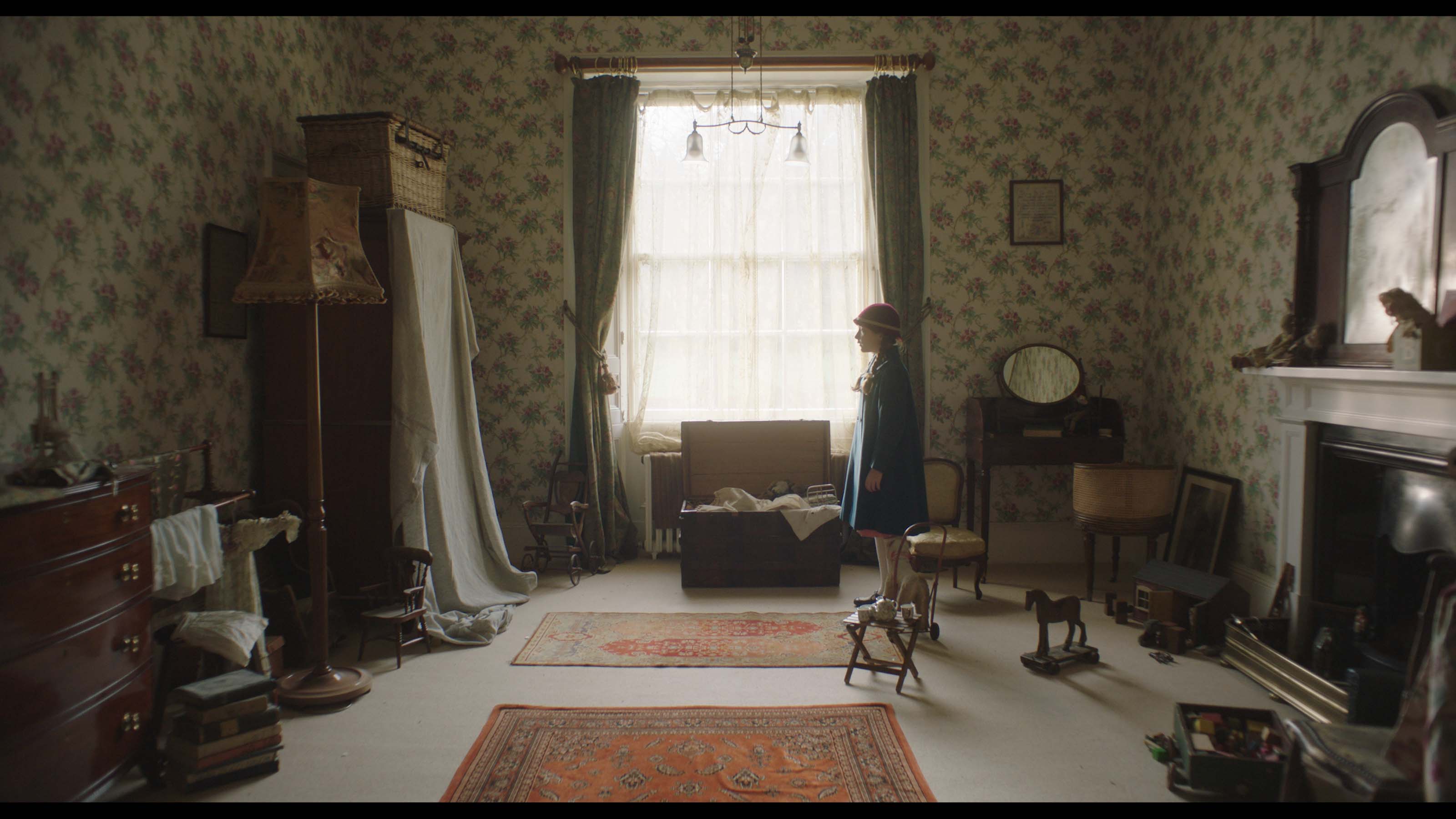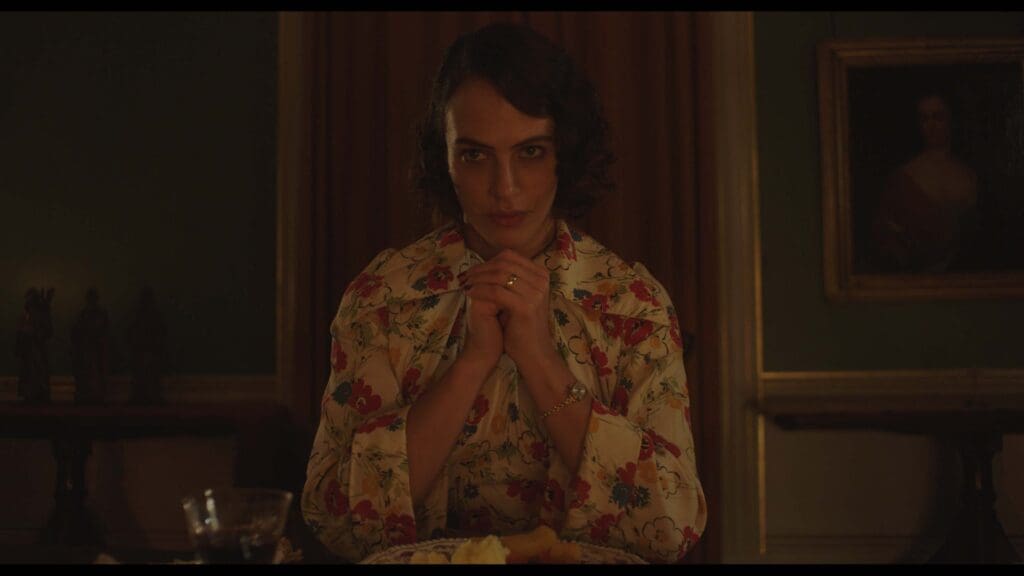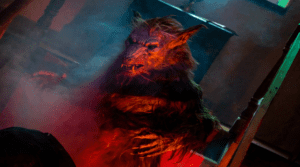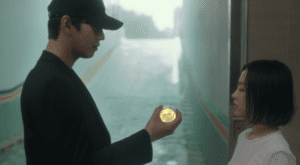Summary
Chris Smith knows how to make exciting horror films, but The Banishing is dreary and too full of slight plot strands for me to recommend it.
I still haven’t learned. Jeffrey Reddick’s directorial debut didn’t live up to his Final Destination writings, the latest one from Darren Lynn Bousman wasn’t as good as the earlier films I Saw, and now the new film from Chris Smith. His first three feature films, Creep, Triangle, and Severance, all great quality horror films in different styles, gave him such a strong reputation that no-one – least of all me – expected anything less in relation to his brand new film. But The Banishing is not great. It’s beautifully made, and with a sound cast; but the story is such a muddle, with many loose threads and much worse than that: it’s dull.
The Banishing is the story of Linus (John Heffernan, Jonathan Strange & Mr. Norrell), a young vicar taking on a new posting in a small town in the north of England in the 1930s. He takes his new wife Marianne (Jessica Brown Findlay, Downton Abbey), who he has gallantly plucked out of scandal, along with Marianne’s young daughter Adelaide (Anya McKenna-Bruce, Cleaning Up), and they move into the rather grand manor on the edge of town. Bishop Malachi (John Lynch, Tin Star) has told Linus that the previous occupants have gone overseas, but the locals consider their departure quite mysterious and the congregation is crying out for a boost. Linus worries that local superstition has rubbed off on his liberal-minded wife when she starts complaining of strange sounds and distinctly odd changes in her daughter’s behavior.
Strange dreams, spooky dolls, religious conspiracy, a bohemian occultist, a mirror that doesn’t always obey physics, and good old-fashioned British misogyny. You probably know the kind of thing to expect in a period mystery horror, but somehow, despite all those rich elements, there is nothing exciting in The Banishing. The house has an oppressive atmosphere, all the dialogue is either miserable or anxious, Hitler is on the rise, and the only person who shows a real smile is Adelaide (while also being creepy). If you like your horror full of Gothic doom, perhaps this will suit you; but I didn’t even catch a whiff of romance.

It’s a real shame. Such a lot of period ambiance has been applied, with careful lighting, colorful characters, and suitably layered score. None of that compensates for the dreary tone, which made The Banishing seem much longer than it was. Perhaps that reflected the way Smith’s usually suspenseful style was kept on a leash for most of the film: it didn’t really have a chance to show itself until the final twenty minutes or so. This surely is due to the writing, from a team of three: David Beton, Ray Bogdanovich, and Dean Lines. If the story had been kept simple, The Banishing could have been another The Woman in Black or The Conjuring; but no. There is a – potentially interesting – history to the house which is tentatively connected to Marianne’s history, though this is never confirmed. Adelaide seems to have some psychic connection too, but this is never explained or developed. Add the subplots around the maid, the medium, the bishop, and the mystery monks and there is just too much. This plot could have come across as dense or intriguing, but most of it is touched on so lightly (allowing the moderate run time) that the plot really could have benefited with something being left out in favor of some additional depth.
There was one element to The Banishing which I did find interesting, and that was the relationship between Marianne and Linus. They are such different people that the attraction (or at least affection) is difficult to explain. She has been treated as mad because of an unbecoming lifestyle, and it is clear that she is still independent-minded and wishes to continue making her own friends and opinions. He, on the other hand, is virtuous and determined to make a good example towards his flock, while also disapproving of any kind of superstition and war effort. At first, it seemed that they were written that way to simply bring dramatic contrast to the story, but the relevance of both personalities became clear as the film went on.
The publicity claims that The Banishing is “based on the true story of the most haunted house in England”, but I have found nothing that supports either the film being true or the house being “most haunted”. The UK premiere took place at FrightFest in October 2020, and Shudder has claimed the rights to broadcast the film after that. I do hope Christopher Smith will be remembered more for his earlier works.



